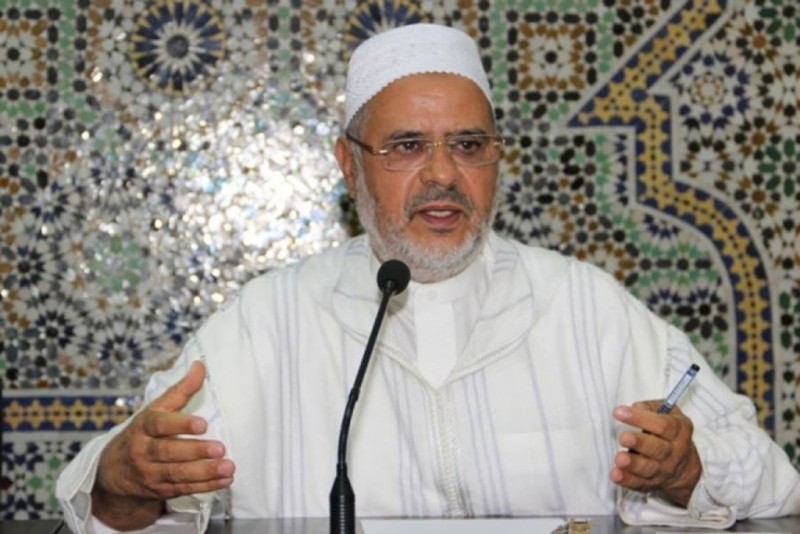AhlulBayt News Agency: Following an emergency meeting on Saturday, the board of directors of the International Union of Muslim Scholars (IUMS) announced that they accepted Ahmed Raissouni’s resignation as head of the organization.
More than two-thirds of the council voted in favor of “Sheikh Ahmed Raissouni’s desire to resign from the presidency,” giving “priority to the Union’s interest.”
The council expressed “full respect and deep gratitude” to the former president for his “distinguished scientific and intellectual contributions, and his enormous sacrifices for the union and the Ummah.”
The decision remains consistent with the IUMS rules, which specify that the responsible authority has a maximum of one month to accept or reject the president’s resignation, the council said.
It also announced its decision to form a reconciliation committee, which was tasked with communicating with relevant societal and scientific parties in coordination with the General Secretariat of the Union.
In announcing his resignation from the presidency of the International Union of Muslim Scholars, Raissouni explained that he wished to “exercise [his] freedom of expression, without condition or pressure.”
He made the decision to resign two weeks after sparking controversy for describing the existence of the Mauritanian state as a “mistake.”
When asked about the Western Sahara issue in a televised interview, the renowned Moroccan preacher stated that Mauritania should also be a part of Morocco.
“I previously mentioned that even Mauritania’s existence is a mistake,” Raissouni said in the interview, adding that “Morocco should go back to how it was before European occupation.”
With heavy criticism and condemnation from the Mauritanian government, civil society, political parties, and some other MENA observers, Raissouni responded that his remarks were “spontaneous” and that he did not intend to challenge Mauritania’s sovereignty.
The Moroccan scholar insisted, however, that the views he expressed in the televised interview were based on historical facts.
/129
More than two-thirds of the council voted in favor of “Sheikh Ahmed Raissouni’s desire to resign from the presidency,” giving “priority to the Union’s interest.”
The council expressed “full respect and deep gratitude” to the former president for his “distinguished scientific and intellectual contributions, and his enormous sacrifices for the union and the Ummah.”
The decision remains consistent with the IUMS rules, which specify that the responsible authority has a maximum of one month to accept or reject the president’s resignation, the council said.
It also announced its decision to form a reconciliation committee, which was tasked with communicating with relevant societal and scientific parties in coordination with the General Secretariat of the Union.
In announcing his resignation from the presidency of the International Union of Muslim Scholars, Raissouni explained that he wished to “exercise [his] freedom of expression, without condition or pressure.”
He made the decision to resign two weeks after sparking controversy for describing the existence of the Mauritanian state as a “mistake.”
When asked about the Western Sahara issue in a televised interview, the renowned Moroccan preacher stated that Mauritania should also be a part of Morocco.
“I previously mentioned that even Mauritania’s existence is a mistake,” Raissouni said in the interview, adding that “Morocco should go back to how it was before European occupation.”
With heavy criticism and condemnation from the Mauritanian government, civil society, political parties, and some other MENA observers, Raissouni responded that his remarks were “spontaneous” and that he did not intend to challenge Mauritania’s sovereignty.
The Moroccan scholar insisted, however, that the views he expressed in the televised interview were based on historical facts.
/129

